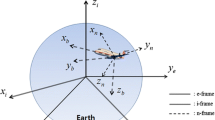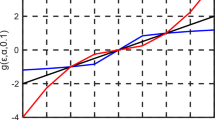Abstract
Inertial Navigation System (INS) and Global Positioning System (GPS) technologies have been widely used in a variety of positioning and navigation applications. Both systems have their unique features and shortcomings. Therefore, the integration of GPS with INS is now critical to overcome each of their drawbacks and to maximize each of their benefits. The integration of GPS with INS can be implemented using a Kalman filter in such modes as loosely, tightly and ultra-tightly coupled. In all these integration modes the INS error states, together with any navigation state (position, velocity, attitude) and other unknown parameters of interest, are estimated using GPS measurements. In a high performance system it is expected that all these unknown states will be precisely estimated. Although it has been noted that both the quality of the GPS measurements and the trajectory and/or manoeuvre characteristics of the problem will have impacts on system performance, a systematic sensitivity analysis is still lacking. This paper will address this issue through real data analyses. The performance analysis results are very relevant to system design and platform trajectory and/or manoeuvre optimisation.
Similar content being viewed by others
References
Bevly D M, Rekow A, Parkinson B. Comparison of INS vs. Carrier-Phase DGPS for Attitude Determination in the Control of Off-Road Vehicles, Navigation.Journal of the U S Institute of Navigation, 2000,47(4):257–265.
Da R. Investigation of a Low-Cost and High-Accuracy GPS/IMU System.ION National Technical Meeting. Santa Monica, California, 14–16 January, 1997. 955–963.
Grejner-Brzezinska D, Da R, Toth C. GPS Error Modeling and OTF Ambiguity Resolution for High-Accuracy GPS/INS Integrated System.Journal of Geodesy, 1998,72: 626–638.
Kwon J H, Jekeli C. A New Approach for Airborne Vector Gravimetry Using GPS/INS.Journal of Geodesy, 2001,74: 690–700.
Cannon M E. Airbone GPS/INS with an Application to Aerotriangulation [Ph.D Thesis], USCE Report Number 20040. the Univ of Calgary: Dept of Geomatics Eng, 1991.
Schwarz K P, El-Sheimy N, Liu Z. Fixing GPS Cycle Slips by INS/GPS-Methods and Experiences.Int Symp on Kinematic Systems in Geodesy, Geomatics & Navigation (KIS94), Banff, Canada, 30 August-2 September, 1994. 265–275.
Grejner-Brzezinska D, Da R, Toth C. Positioning Accuracy of the Airborne Integrated Mapping System.National Technical Meeting of the Institute of Navigation, Long Beach, California, 21–23 January, 1998. 713–721.
Wong R V C. Development of A RLG Strapdown Inertial Navigation System. [Ph.D Thesis]. USCE Report Number 20027. the Univ of Calgary: Dept of Geomatics Eng, 1988.
Bar-Itzhack I Y, Berman N. Control Theoretic Approach to Inertial Navigation System.AIAA Journal of Guidance, Control & Dynamics, 1988,11: 237–245.
Lee H K, Wang J, Rizos C. Kinematic Positioning with an Integrated GPS/pseudolite/INS.2nd Symp on Geodesy for Geotechnical & Structural Applications. Berlin, Germany, 21–24 May, 2002. 314–325.
Boeing Denfense and Space Group. C-MIGITS-II Integrated GPS/INS User’s Guide. Anaheim, California: Boeing North American, 1997.
Farrell J A, Barth M.The Global Positioning System and Inertial Navigation. New York: McGraw-Hill (ISBN-0-07-022-45-X), 1999.
Author information
Authors and Affiliations
Corresponding author
Additional information
Foundation item: Supported by the University of New South Wales Faculty Research Grant (FRG: PSO330O), the Kwanjeong Educational Foundation of Korea
Biography: Wang Jin-ling (1961-), male, Lecturer, research direction: GPS, Glonass, Galileo, Pseudolites, INS and spatial information systems.
Rights and permissions
About this article
Cite this article
Jin-ling, W., Lee, H.K. & Rizos, C. GPS/INS integration: A performance sensitivity analysis. Wuhan Univ. J. Nat. Sci. 8, 508–516 (2003). https://doi.org/10.1007/BF02899813
Received:
Issue Date:
DOI: https://doi.org/10.1007/BF02899813




